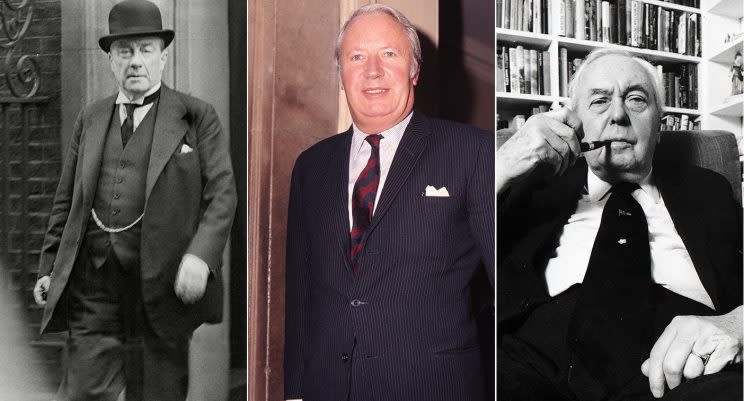Three times British politicians gambled on a ‘snap election’ - and it backfired

April 18 now seems a very long time ago – when Theresa May announced that she would hold a snap election with the goal of ‘unity’.
A snap election is an election called much earlier than needed, usually by a party in a position of strength – and they’re relatively rare in the UK.
Since calling this year’s snap election, May has dealt with setbacks such as the disastrous reception for the so-called ‘dementia tax’ revealed in her party’s manifesto.
The Conservatives’ lead over Labour has plunged from the 16-point lead May enjoyed in April, with one (controversial) YouGov poll now predicting a hung Parliament.
But can snap elections really backfire this badly? Actually, yes – and in some ways, May’s decision to call one this year has echoes of past mistakes….
1923 – Stanley Baldwin

Conservative leader Stanley Baldwin hoped to strengthen his own position within the party when he gambled on a general election one year after Andrew Bonar Law’s victory.
Like Theresa May’s snap election – called to foster ‘unity’ in the run-up to Brexit – Baldwin fought on one issue, protectionist trade tariffs.
It backfired.
MORE GENERAL ELECTION NEWS AND ANALYSIS ON YAHOO UK:
These are the constituencies which could decide the general election
Weak and wobbly: Theresa May’s five most embarrassing U-turns
General election 2017: Who’s more likely to vote, Brexiteers or Remainers?
QUIZ: Which UK political party leader are you?
This is what the Labour manifesto says about Brexit
UKIP wants to ban the burka because it stops people getting enough vitamin D
In the wake of the result, Baldwin said glumly, ‘Everyone who tries in politics to do the thing he believes in simply and honestly is sure to come a smeller. The martyrs did. Christ did.’
The result was a hung parliament, instead of an increased majority – and a month later, Baldwin resigned, paving the way for the first-ever Labour government.
February 1974 – Edward Heath

On February 7, 1974, Prime Minister Edward Heath called a snap general election in response to a planned miner’s strike.
Heath posed the question, ‘Who governs Britain?’
While Heath’s Conservatives got more votes than Labour, Labour won more seats – and Heath resigned on March 4, 1974.
In February 1975, Margaret Thatcher challenged Heath for the leadership of the Conservative party – and unexpectedly won.
Heath said, ‘They have made a grave mistake choosing that woman.’
October 1974 – Harold Wilson

Labour’s Harold Wilson was a veteran of snap elections – having successfully called one in 1966, and going from a majority of four up to a majority of nearly 100..
But in October 1974, he wasn’t so lucky.
Wilson’s Labour party won the election, but with the slimmest of majorities – just three seats.
A series of by-election defeats led to Labour losing even this majority – and in 1977, the party was forced into a pact with David Steel’s Liberals, known as the Lib-Lab pact.

 Yahoo News
Yahoo News 


